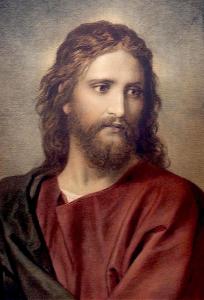 Older accounts of Christian Sundays named this day, “Christ the King,” prior to a necessary increase of concern for the overly masculine language that continues to permeate Christian discourse. We now appropriately call the day, “The Reign of Christ.” It is the day that signals the end of the long “ordinary time,” comprising the summer and the nearly three months of September, October, and November. Next week begins Advent and a new round of lectionary texts. I have rarely heard much emphasis on this day in United Methodist circles, but it is the entrée into the holy seasons of Advent and Christmas, and as such offers to the preacher a way to focus the attention of the congregation on Christ’s present rule on earth just before we all turn toward the expectation of his birth and his coming into the world precisely for the purpose of that reign. We need to speak of the reign of Christ in order to be fully prepared to understand the anticipation and wonder of his coming among us, as well as to remind us of our need to make good choices, choices worthy of the rule of Christ, as we prepare to vote soon for our elected leaders.
Older accounts of Christian Sundays named this day, “Christ the King,” prior to a necessary increase of concern for the overly masculine language that continues to permeate Christian discourse. We now appropriately call the day, “The Reign of Christ.” It is the day that signals the end of the long “ordinary time,” comprising the summer and the nearly three months of September, October, and November. Next week begins Advent and a new round of lectionary texts. I have rarely heard much emphasis on this day in United Methodist circles, but it is the entrée into the holy seasons of Advent and Christmas, and as such offers to the preacher a way to focus the attention of the congregation on Christ’s present rule on earth just before we all turn toward the expectation of his birth and his coming into the world precisely for the purpose of that reign. We need to speak of the reign of Christ in order to be fully prepared to understand the anticipation and wonder of his coming among us, as well as to remind us of our need to make good choices, choices worthy of the rule of Christ, as we prepare to vote soon for our elected leaders.
Ezekiel offers to us a delightful and prescient way to get our heads around just what it is we can expect with a celebration of the current and coming reign of Christ. The ancient prophet provides language that will sound very familiar to readers of the New Testament, though his oracles were uttered during and not long after the exile of Israel to Babylon in the 6th century BCE, about 600 years before the New Testament made an appearance among the early church. The exile was perhaps the most devastating blow that the nation of Israel ever suffered. When King Nebuchadnezzar of Babylon sent his armies to Jerusalem in 597BCE, he began the ten-year process that led to the final destruction of the city in 587BCE. In the interim, Nebuchadnezzar placed what he imagined to be his puppet king on the throne of Judah, Zedekiah, but the puppet all too soon broke with the Babylonian king, at the instigation of his court, and fomented rebellion against his overlord. This action was a huge mistake, leading to Nebuchadnezzar himself leading his armies to the city, surrounding it for many months, bringing starvation and desperation to the people, culminating in the Babylonians entering the city, burning the palace and the temple, devastating the rest of the place, and leading the court of Zedekiah into exile, blinding the hapless king after murdering all of his children. In addition, many other Judeans escaped to Egypt, including the prophet, Jeremiah, thus creating significant Jewish communities in both places. In fact, the Babylonian Jewish community became the most significant group of Jews in the world for the next 1000 years. The disaster of exile thus became the origin of a new Jewish diaspora, and led to new ways of thinking about the faith of Israel.
Perhaps sometime during this exile in Babylon, the prophet Ezekiel continued his work of summarizing the old faith and pointing to the future of that faith by using striking poetic language that burned itself into the minds and hearts of all those who heard and read it. Here in Ez.34 he turns to the ancient and familiar metaphors of sheep and shepherd to remind his hearers what YHWH still has in store for the exiled people. They may be far from home in Babylon and Egypt, but God, the good shepherd, remains in the  business of leading and protecting the sheep. Ezekiel begins with the powerful voice of the prophet of YHWH: “For thus says YHWH God, I myself will search for my sheep; I will seek them out. As shepherds seek out their flocks when they are among their scattered sheep, so I will seek out my sheep. I will rescue them from all the places to which they have been scattered on a day of clouds and thick darkness” (Ez.34:11-12). Ezekiel poetically describes the terrible days of exile as days of “clouds and thick darkness,” metaphors that have long characterized times of danger and evil for Israel. Still, says Ezekiel, in spite of those terrible days, YHWH is the shepherd who is always seeking the sheep; exile is no different.
business of leading and protecting the sheep. Ezekiel begins with the powerful voice of the prophet of YHWH: “For thus says YHWH God, I myself will search for my sheep; I will seek them out. As shepherds seek out their flocks when they are among their scattered sheep, so I will seek out my sheep. I will rescue them from all the places to which they have been scattered on a day of clouds and thick darkness” (Ez.34:11-12). Ezekiel poetically describes the terrible days of exile as days of “clouds and thick darkness,” metaphors that have long characterized times of danger and evil for Israel. Still, says Ezekiel, in spite of those terrible days, YHWH is the shepherd who is always seeking the sheep; exile is no different.
The exiles will be brought home by the ever-vigilant YHWH, who will “make them lie down,” an obvious echo of the 23rd psalm, in “good grazing land” where they shall “feed on rich pasture on the mountains of Israel” (Ez.34:14-15). Ezekiel continues, “I will seek the lost, and I will bring back the strayed, and I will bind up the injured, and I will strengthen the weak, but the fat and the strong I will destroy. I will feed them with justice” (Ez.34:16). This is a curious and enigmatic verse. Just who are the “fat and the strong?” Are they Israel’s enemies, the Babylonians and the Egyptians, or are they comfortable and rapacious Israelites, who have fattened themselves on their own people and grown strong thereby? I suggest Ezekiel means the latter. Every struggling community has within its ranks those who are ever ready to take advantage of the weaker members in order to feather their own nest. This activity YHWH seeks to stop by saying that the food God will provide is in reality justice, that famous prophetic word that announces that all members of the community of Israel will henceforth have an equal share of the goods available and will have full access to those goods; the fat and the strong will no longer be allowed to grab more than any other.
This reading is affirmed in the second part of today’s lection. “I myself will judge between the fat sheep and the lean sheep” (Ez.34:20). Here may be an echo of the long- ago tale of Joseph who in a dream saw “fat and lean cows,” signs that famine was soon to descend on Egypt after a period of plenty. Prepare for the worst, warns Joseph, to be ready for the lean years. For Ezekiel, the fat sheep have become fat without thought for the lean, and have “pushed with flank and shoulder, and butted at all the weak animals with your horns until you scattered them far and wide; …I will judge between sheep and sheep” (Ez.34:20-22). The divine shepherd has concern for all the flock, and the fat ones must be disciplined for their abuse of the lean sheep. The new community post-exile will not resemble the one that existed before; the new Israel will be a place of comity and harmony, devoid of classes of sheep where fat ones take advantage of weak ones.
Then Ezekiel announces that YHWH, though the ultimate shepherd, will establish an earthly shepherd, “my servant David, who shall feed them” (Ez.34:23). If we are familiar with the lengthy story of David in 1 and 2 Samuel, this may come as something a shock. Surely, YHWH does intend to establish that David as shepherd of a new Israel, that lying, thieving murderer! Hardly! This is the idealized David, a figure to be found in the books of Chronicles, the greatest king in Israel’s history, who reigned over a territory as large as Israel ever had, who sang blessed songs to YHWH, who led Israel in devout worship, who played his harp to perfection, whose memory has far surpassed the tawdry facts of his earthly life. This will be a new David, a fresh David, devoted to the work of the divine shepherd, a king who will at last mirror the grand expectations for kings found in the coronation psalm 72.
For Christians, of course, that new David is Jesus of Nazareth. This is why when Jesus rides that donkey into Jerusalem not long before his betrayal and death, the cheering crowds are shouting, “Hosanna to the son of David!” There he is at last, the chosen shepherd of the people, just as Ezekiel had announced so long ago. Of course, Ezekiel did not have Jesus in mind as he wrote his exilic words. What he apparently hoped for was a cleansed David, a true king, a moral leader, an active force for justice for all people. Is that not what we still long for in 2020? On this Reign of Christ Sunday, let us focus our attention squarely on the vast hopes of a new David, a true man of God, a leader we can count on who will seek us out, who will bind us up, who will bring us home. Ezekiel has well voiced what we all desire so passionately: leaders who can be trusted to lead all the people. In this election season, may we choose such a leader, one who attempts to mirror the justice of the great shepherd, God, and the righteousness of God’s son Jesus, a true new David.
(Images from Wikimedia Commons)











